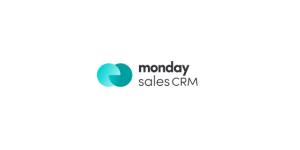Customer Relationship Management (CRM) systems have become indispensable tools for businesses aiming to build stronger, more profitable relationships with their customers. However, deciding how to implement a CRM solution can be a daunting task. Two primary options are available: working with a CRM agency or hiring a CRM specialist in-house. In this blog post, we'll explore the benefits and drawbacks of each approach, helping you make an informed decision that aligns with your organization's unique needs and objectives.
Here are some robust CRM systems:
What is CRM Implementation with an Agency?
Implementing your CRM software with an agency can be a smart decision, especially if your business faces resource constraints or lacks technical know-how. Collaborating with a dedicated CRM software development team grants you access to a cadre of skilled professionals who specialize in this domain. Their expertise guarantees efficient and accurate software development, while simultaneously saving you the time, effort, and expenses that self-development would demand.
Moreover, implementation with an agency gives additional value to your organization by freeing you from the burden of dedicating extra resources to the development process. Nonetheless, it's important to bear in mind that outsourcing can sometimes come at a significant cost, especially when partnering with a large software development company. Thus, diligent research and price comparisons across providers are essential to ensure you get the most bang for your buck.
On the other hand, when opting to develop your CRM software in-house, you gain the unique advantage of tailoring the software to precisely meet your needs and requirements. This creative freedom empowers you to craft a product that aligns perfectly with the specific goals of your business. Additionally, in-house development grants you full control over the process, assuring that the final product aligns with your highest quality standards.
However, it's important to recognize that this path necessitates a substantial degree of technical expertise, resources, and a significant investment of time and effort. If your business lacks the essential resources or expertise, pursuing in-house development may not be the most prudent choice.
What is In-House CRM Development?
Implementing your CRM software in-house presents an opportunity to cut costs and enjoy the freedom to personalize the software to suit your precise requirements. Nevertheless, it's crucial to recognize that this route demands a substantial amount of technical know-how, resources, and a considerable investment of time and energy. If you're uncertain about your team's readiness or the time you can commit to the development process, making an informed choice becomes vital. A lack of the right team or sufficient time may result in costly errors, delays, and a product that falls short of your expectations.
In certain scenarios, opting for a ready-made CRM solution or outsourcing the development to a specialized third party could prove to be more cost-effective. This approach enables you to tap into the expertise of professionals who specialize in CRM software development and have a wealth of experience in the field. Ultimately, the decision of whether to undertake in-house CRM software development or outsource it depends on the unique needs and circumstances of your business.
The Benefits of Implementing CRM with an Agency
Your Efficient CRM Option to Consider

4.9
Expertise and Experience
One of the most significant advantages of implementing CRM with an agency is gaining access to a pool of experts who specialize in CRM solutions. These professionals have in-depth knowledge and extensive experience in the field, having worked on a wide range of CRM projects. They are well-versed in industry best practices, cutting-edge technologies, and effective strategies for CRM implementation. This expertise ensures that your CRM system is developed and deployed efficiently, accurately, and in alignment with your business goals.
Cost-Efficiency
Collaborating with a CRM agency often proves to be a cost-effective solution for businesses. These agencies have established relationships with CRM software providers, enabling them to secure advantageous pricing for licenses and software packages. They can also leverage their existing resources and expertise, which can help you save on the costs associated with hiring, training, and retaining in-house CRM specialists. In essence, working with an agency allows you to reap the benefits of a skilled team without the overhead costs.
Scalability
CRM agencies offer the flexibility to scale your CRM implementation as your business grows. Whether you need to accommodate more users, add new features, or expand the CRM system to multiple departments, agencies have the resources and expertise to adapt to your evolving needs. This scalability can be challenging to achieve with in-house specialists, who may require constant training and additional hires as your CRM needs grow.
Time-Saving
Implementing a CRM system can be a time-consuming process. Time is money, and the longer it takes to deploy your CRM solution, the more potential revenue and productivity you stand to lose. CRM agencies are equipped with dedicated teams and well-defined processes that streamline the implementation, significantly reducing the time it takes to start seeing tangible results. With their experience, they can quickly identify and mitigate potential roadblocks and bottlenecks, ensuring a more efficient project timeline.
Proven Methodologies
CRM agencies have well-established methodologies and processes developed through years of experience. They know what works and what doesn't, and they apply proven techniques to guide your CRM implementation. This approach can help your organization avoid common pitfalls and challenges associated with CRM projects.
Customization and Integration
CRM agencies are adept at tailoring CRM solutions to meet your specific needs. They can customize the software to align with your unique business processes and customer interactions, ensuring that the system becomes an integral part of your operations. Moreover, they possess the knowledge and experience to integrate the CRM system with other essential tools and software your organization relies on. This seamless integration enhances efficiency and productivity across the board.
[Related article: CRM Implementation in 10 Steps]
Quality Support and Maintenance
The relationship with a CRM agency doesn't end with implementation. They provide ongoing support and maintenance services, ensuring that your CRM system remains optimized, up-to-date, and bug-free. This level of support is often difficult to replicate with in-house teams, who might be stretched thin with other responsibilities. With an agency, you have a dedicated partner to rely on for ongoing improvements and troubleshooting.
Objective Advice
An agency brings an external perspective to your CRM implementation project. They can offer objective advice and recommendations, free from any internal biases or politics that may affect in-house decisions. This impartial viewpoint can be invaluable, as it ensures that the CRM system is developed with a focus on maximizing customer satisfaction and efficiency, rather than internal politics.
Rapid Problem Resolution
With their extensive experience, CRM agencies can quickly identify and address any issues that arise during the implementation process. Their knowledge allows for rapid problem resolution, reducing downtime and ensuring that your CRM system remains fully operational. This ability to troubleshoot efficiently can have a substantial impact on customer service and business productivity.
The Drawbacks of Implementing CRM with an Agency

Loss of Control
One of the most significant drawbacks of partnering with a CRM agency is the potential loss of control over your CRM project. When you entrust the implementation to an external company, you must place a certain degree of trust in their expertise and decision-making. While this can be beneficial in many cases, it may also mean that you have less direct influence over the project's direction, priorities, and decision-making processes.
This reduced control can be particularly challenging for businesses with specific or unique requirements that demand a high level of customization. In such cases, you may find that agency-implemented solutions do not fully meet your distinctive needs and preferences.
Communication Challenges
Effective communication is essential for the success of any CRM project. However, when you collaborate with a CRM agency, there may be potential communication challenges. These challenges can arise due to differences in time zones, geographical locations, or language barriers. The physical and cultural separation between your organization and the agency can lead to misunderstandings, delays, and a lack of clarity in project goals and objectives.
In some cases, the agency may not fully grasp your organization's culture, customer base, or specific operational needs. This can lead to a disconnect in the CRM system's design and functionality, causing problems down the line.
Dependency on the Agency
Outsourcing your CRM implementation establishes a certain level of dependency on the agency. If the agency encounters internal issues, undergoes staff turnover, or faces other challenges, your project's continuity, and quality may be at risk. Reliance on an external agency can leave your organization vulnerable to changes beyond your control, which can be a concern for some businesses.
Moreover, as you continue to grow and evolve, you might find that you need to make updates, enhancements, or changes to your CRM system. Dependency on an external agency for ongoing maintenance and support can lead to long-term reliance on their expertise, potentially limiting your organization's autonomy in managing and optimizing the CRM system.
[Related article: How to Transform CRM Implementation into Processes and Strategy Upgrade]
Cost Considerations
While cost-efficiency is often cited as a benefit of working with a CRM agency, it's important to note that this is not a guarantee. The cost of hiring an agency to handle your CRM implementation can vary widely based on the agency's reputation, expertise, and location. High-quality agencies with extensive experience may command premium prices, which could strain the budget of smaller businesses.
Additionally, hidden costs, such as customization or integration needs, may arise during the implementation process, potentially driving up expenses beyond the initial budget. Thus, it's essential to carefully evaluate the potential cost implications before deciding to work with an agency.
Less Alignment with Organizational Culture
Every organization has its unique culture, values, and way of doing things. When you engage an external agency for CRM implementation, it can be challenging to ensure that the system they design aligns seamlessly with your organization's culture and workflow. This lack of alignment can result in resistance from employees who may find it difficult to adapt to a CRM system that doesn't reflect the way they are accustomed to working.
An agency may not fully understand the nuances of your corporate culture, which could lead to a CRM system that feels foreign or out of place within your organization. Overcoming this misalignment may require additional time and effort to bridge the gap between the system and your employees' expectations and habits.
The Advantages of Implementing CRM In-House

Customization to Fit Unique Needs
One of the primary advantages of implementing CRM in-house is the freedom to customize the system to align with your organization's unique needs and requirements. When your team manages the project, you have complete control over the design, features, and functionalities of the CRM system. This customization empowers you to create a product that is tailored precisely to the specific goals and processes of your business.
In-house CRM solutions can be fine-tuned to match your organization's distinct workflows, customer interactions, and industry-specific requirements. This tailored approach ensures that the CRM system becomes a seamless extension of your operations, rather than a one-size-fits-all solution.
SMBs CRM Software
-1.png)
4.2
Full Control Over the Project
Managing CRM implementation in-house allows your organization to maintain full control over the project. You have direct oversight of decision-making, project priorities, and the timeline. This level of control is especially beneficial for businesses with intricate or rapidly evolving CRM needs.
Your team can make real-time adjustments, adapt to changing requirements, and ensure that the CRM system aligns perfectly with your objectives. This hands-on approach provides the flexibility to address challenges as they arise, which can lead to a more effective and satisfying CRM implementation.
Deep Integration with Existing Processes
In-house CRM implementation allows your team to intimately understand your existing processes and seamlessly integrate the CRM system into your workflow. This deep integration ensures that the CRM system complements your business operations rather than disrupts them.
Your team can work closely with various departments to ensure that the CRM system aligns with the specific needs of each team. This collaborative approach fosters user adoption, as employees find the system tailored to their roles, making it more intuitive and efficient.
Closer Alignment with Organizational Culture
Each organization has its own culture, values, and way of doing things. When you manage CRM implementation in-house, it's easier to ensure that the CRM system aligns seamlessly with your organizational culture. This alignment can lead to increased employee engagement and satisfaction, as the CRM system reflects familiar processes and expectations.
An in-house team can collaborate directly with employees to understand their unique needs and preferences, ensuring that the CRM system accommodates and enhances the existing corporate culture.
The Challenges of In-House CRM Implementation

Resource Intensity
One of the primary drawbacks of in-house CRM implementation is the significant resource intensity it demands. Developing, deploying, and maintaining a CRM system involves a substantial investment of time, money, and human resources. This can be particularly challenging for smaller businesses or organizations with limited budgets, as the costs can quickly add up.
Hiring and retaining skilled CRM specialists, acquiring the necessary software and hardware, and dedicating time to training employees can strain resources. Furthermore, allocating valuable team members to the project may divert them from other essential tasks and projects, potentially impacting overall productivity.
Lack of Technical Expertise
Implementing CRM in-house necessitates a high level of technical expertise. CRM systems are complex, and successful implementation requires in-depth knowledge of software development, database management, integration, and user training. Organizations that lack the necessary expertise may encounter significant challenges during the project.
Without a skilled and experienced team, issues can arise related to system design, data management, security, and overall functionality. These issues can lead to inefficiencies, errors, and, in some cases, costly mistakes that could have been avoided with specialized knowledge.
Time-Consuming
Implementing CRM in-house is a time-consuming endeavor. From the initial planning stages to the actual deployment and ongoing maintenance, the process can take months or even years to complete. During this time, your organization may experience disruptions to normal operations, and employees may be required to dedicate a substantial amount of time to the project.
The extended timeline can impact your ability to see a return on investment quickly. In contrast, external agencies often have dedicated teams and established processes that can expedite the implementation process, allowing you to benefit from the CRM system more rapidly.
Opportunity Costs
When you choose to implement CRM in-house, you may need to allocate valuable resources, including staff and funding, away from other projects and strategic initiatives that could be equally or more beneficial.
The opportunity cost of in-house CRM implementation can be substantial, as it diverts attention and resources from activities that directly contribute to your organization's growth and profitability. It's essential to weigh these potential losses against the benefits of in-house control and customization.
Risk of Errors and Delays
In-house CRM implementation carries a higher risk of errors and delays, particularly if your team lacks the necessary expertise and experience. Mistakes in system design, data migration, and integration can lead to costly setbacks. Delays in project timelines can disrupt your business operations and hinder your ability to serve customers effectively.
Error mitigation and troubleshooting can also consume additional resources and time. While external agencies often have experience handling similar issues and are better prepared to address them promptly, in-house teams may find it more challenging to resolve unforeseen challenges efficiently.
Limited Access to Cutting-Edge Technology
Implementing CRM in-house may limit your access to the latest and most advanced CRM technologies. CRM software is continuously evolving, and external agencies often have partnerships with CRM software providers that grant them early access to new features and updates. This means your organization might not be able to take full advantage of cutting-edge CRM capabilities that could enhance your customer relationships and efficiency.
Additionally, staying up-to-date with emerging CRM technologies requires ongoing training and skill development for your in-house team, which can be time-consuming and costly.
Outsourcing vs. In-House CRM Development: What to Choose?

When it comes to deciding between outsourcing and developing a CRM in-house, there is no one-size-fits-all answer. Each approach brings its own set of advantages and disadvantages, and what works for one business may not work for another. It is crucial to carefully evaluate your specific business needs and available resources before making a decision.
If your organization has the necessary resources, developing a CRM in-house can be a fantastic option. This approach provides you with complete control over the system's features and functionality, allowing you to customize it to perfectly suit your unique business requirements. Additionally, developing the CRM in-house can give you a competitive edge, as you will have a distinctive system that sets you apart from your competitors.
On the other hand, outsourcing your CRM development can be a cost-effective and time-saving solution. By partnering with a team of experts experienced in CRM system development, you can speed up the system's launch and benefit from ongoing support and maintenance provided by the development team.
Ultimately, the decision to outsource or develop your CRM in-house depends on your business requirements, budget, and available resources. If you have the necessary resources and expertise, developing a CRM in-house can provide you with complete control over the system's features and functionality. If you are looking to save time and money and want ongoing support and maintenance, outsourcing your CRM development may be the ideal solution for your business.
Regardless of the approach you choose, it is crucial to carefully evaluate your options and work with a team of experts who can assist you in developing and launching a CRM system that perfectly aligns with your specific business needs. A well-designed and well-implemented CRM system can greatly enhance your ability to effectively manage customer relationships, boost sales, and improve overall customer satisfaction.
FindMyCRM service can help you select the most suitable CRM system for your business.

.png)






